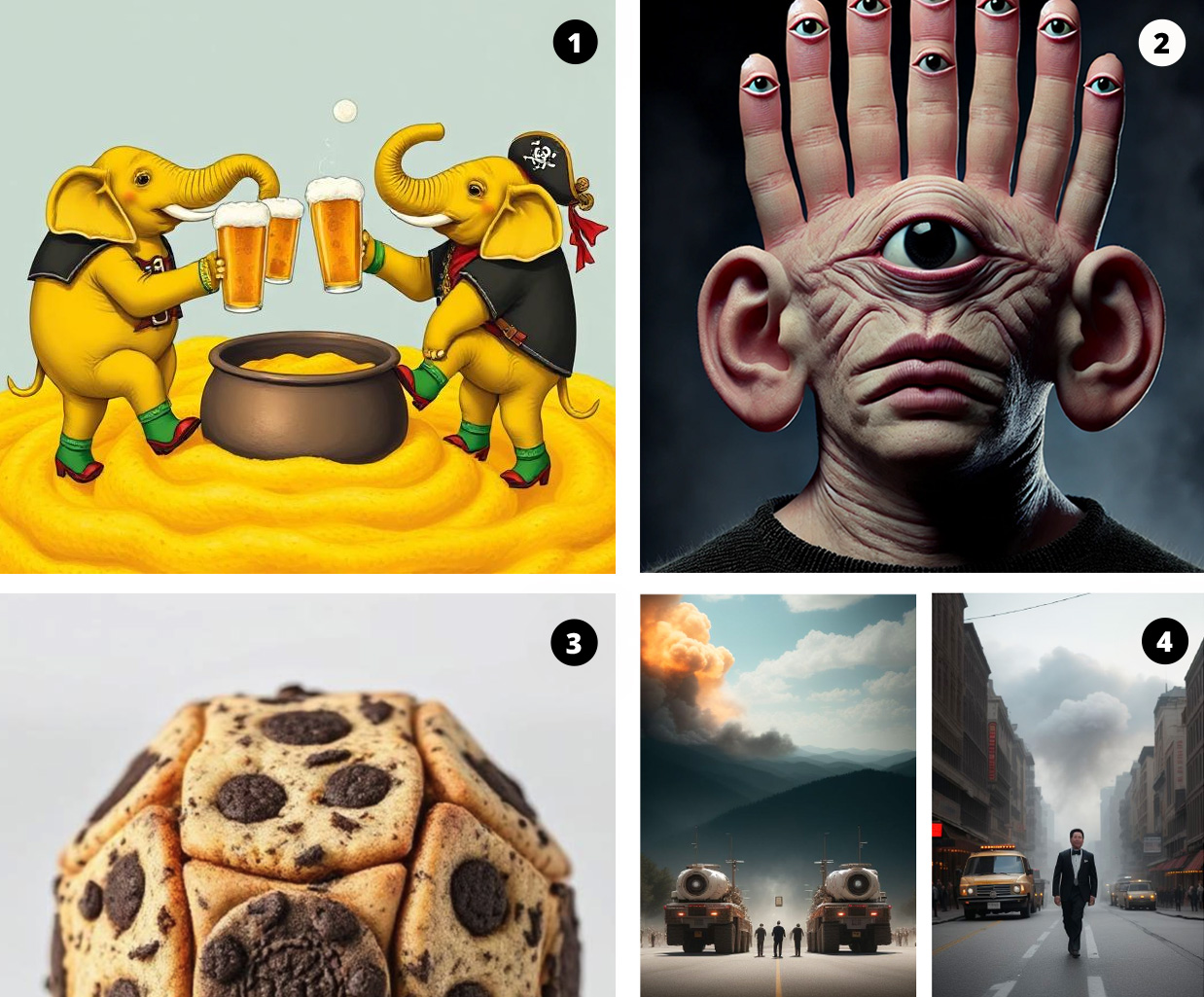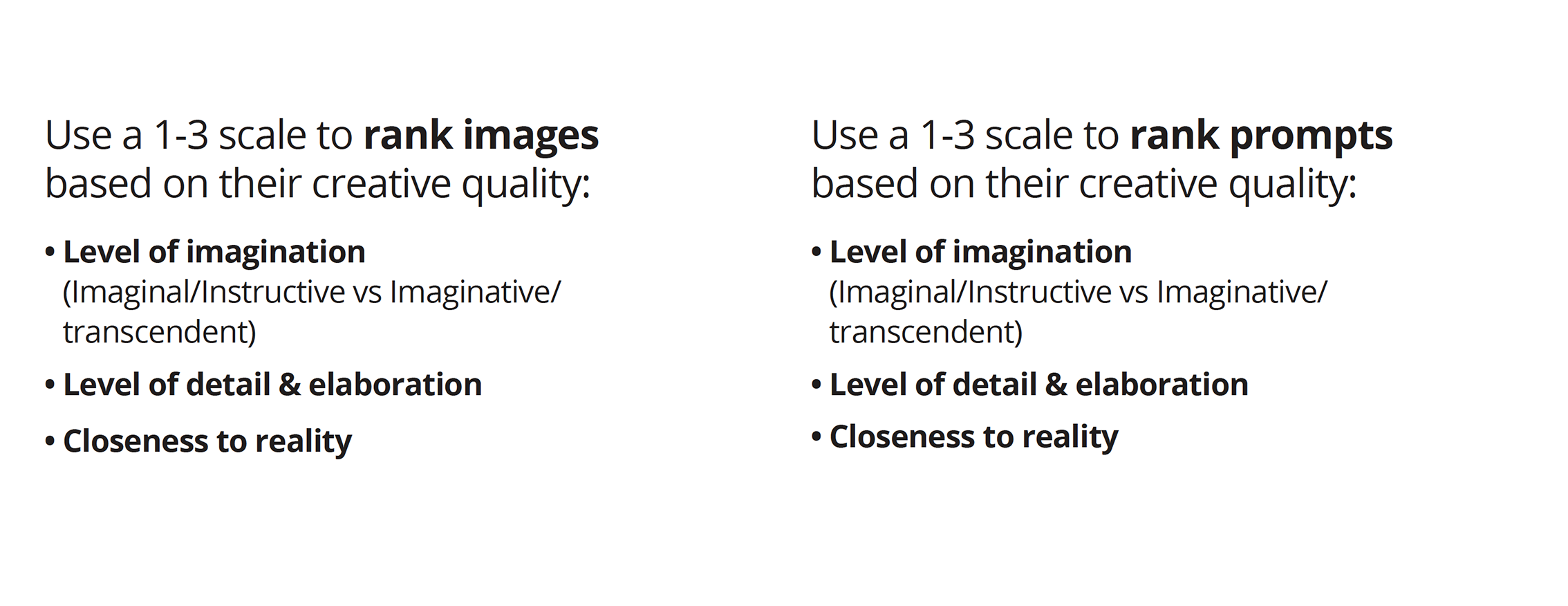
Conversations about whether artificial intelligence (AI) will replace people’s creativity and related jobs have intensified and become a concern among art and design students. This is why as part of my Imagination, Well-Being & Happiness course, students grapple with these ideas: Is AI creative? Could it replace designers’ imagination and creativity?
As an experiment, I tasked students with an exploratory exercise. They had to generate three imaginative images based on three prompts also generated by them. The next class, working in pairs, students analyzed and ranked both prompts and images generated based on their creative quality using three criteria:

Prompt characteristics determine image creative quality
Interestingly, the class ranked as instructive or less imaginative the prompts that led to more realistic images with fewer level of details. That is, when prompts were traditional, realistic, or had little level of detail, the resulting imagery while unique, it did not have high creative quality or was considered imaginative. In contrast, more imaginative or transcendent prompts led to more unconventional and original images. Similarly, students ranked very detailed prompts as very imaginative and leading to creative images.
These results indicate the importance of first generating imaginative prompts. AI can only be as creative as the prompt we generate. If we lack imagination or only input ideas that are rooted in what we expect to happen or experiences that we have already lived, AI will not be able to generate creative outputs.
AI human-imposed constraints
Surprisingly, AI’s incapacity to generate imagery in response to more unconventional prompts, specially to those considered taboo, unethical, malevolent, amoral, illegal, and infeasible, was noticeable. For instance, the following prompts, although highly imaginative, resulted in mundane images (shown at the top of this post), which in some cases ignore the specified details:
(1) “55 yellow elephants drinking beer with pirates on a pot of polenta with green socks in high heels”
(2) “Imagine a human-like creature with 10 fingers on each hand. He has one eye which is on the place of his lips, he has two lips aligned vertically on the place of his nose and has two noses on the place of his eyes, his head is covered with eyes.”
(3) “A dodecahedron made of human flesh”
(4) “Craziest, wildest, most insane, amazing photo you can generate”
Creative process, not output
This exercise also highlighted the risks of only assessing creativity by looking at the final output, like what AI generates. Mark Runco explains that by focusing only on outputs or “products” rather than on the process, that is idea generation or writing the prompt, people would believe that what AI produces is creative. “More precisely, some people may attribute creativity to original or surprising products of AI,” but would not appreciate the value of what is behind: human imagination. This suggests that the process we go through when we think imaginatively and create is impossible for AI.
By the end of the class, relief was the general feeling, as if someone would have removed a veil from their eyes. Students started to realize that what once saw as a potential threat of their creative abilities, it is actually just a tool – a sophisticated one, but that they can still control. Rather, imagination is the cognitive ability that distinguishes them from this tool and that – so far – AI cannot replicate. The success of AI depends entirely on users’ imaginative input.
AI has access to large databases and this is why it can find and create responses to many prompts. However, the fact that AI relies on both: searches of existing databases and data entered by humans, suggests that it discovers ideas and solutions rather than creates novel ones, and that these ideas and solutions are constrained by human’s views – and self-imposed constraints.
In short, in contrast to humans, AI cannot conceive nor generate new content or convey emotions.
Runco M.A. (2023), AI can only produce artificial creativity. Journal of Creativity 33, 100063
You must be logged in to post a comment.